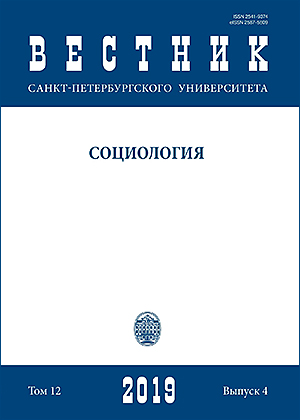Professional activities of civil servants: a competency-based approach
DOI:
https://doi.org/10.21638/spbu12.2019.403Abstract
The article analyzes the problem of a competency-based approach in the system of civil service in in the Russian Federation. It was established that the professionalism of public servants is defined as a competence, which means the ability to effectively fulfill their duties relying on their competencies and in the conditions of active interaction within the system and with citizens. Furthermore, not only functional competencies become essential such as knowledge, and skills in the field of administration, but also management and communication skills become significant. It has been determined that the requirements established in the Directory of Qualification Requirements for public service were primarily functional in nature and do not take into account the institutional component of public administration. Also, the Federal Educational Standards does not form a complete list of requirements established in the Directory. Thus, the competencies defined in regulatory documents do not meet the requirements put forward by the society for public service as the main subject of public administration. This discrepancy leads to the emergence of some social risks. Firstly, the role model, formed in the Directory, meets the expectations of society for the humanization of public administration, but reduces the social status of public servants to the level of technical administrative personnel. This leads to demotivation of officials, a decrease in the quality of public administration, and an increase in dysfunctions, such as red tape and formalization. Secondly, the competency model formed in the course of education does not meet the professional requirements that apply to lower-level public servants. Unfortunately, institutional competencies are not taken into account during HR methods, and therefore employees are not motivated to develop them in full. The resulting frustration leads to increased tension within the public service system, which is subsequently transmitted into society, and facilitates the decrease in confidence in the state. Further improvement of the competency-based approach in the public administration system is associated with both the revision of regulatory documents and the revision of the principles of organizing employee training.
Keywords:
professional activity, public service, competence, expertise, GEF, Professionalism
Downloads
References
References
Downloads
Published
How to Cite
Issue
Section
License
Articles of "Vestnik of Saint Petersburg University. Sociology" are open access distributed under the terms of the License Agreement with Saint Petersburg State University, which permits to the authors unrestricted distribution and self-archiving free of charge.




